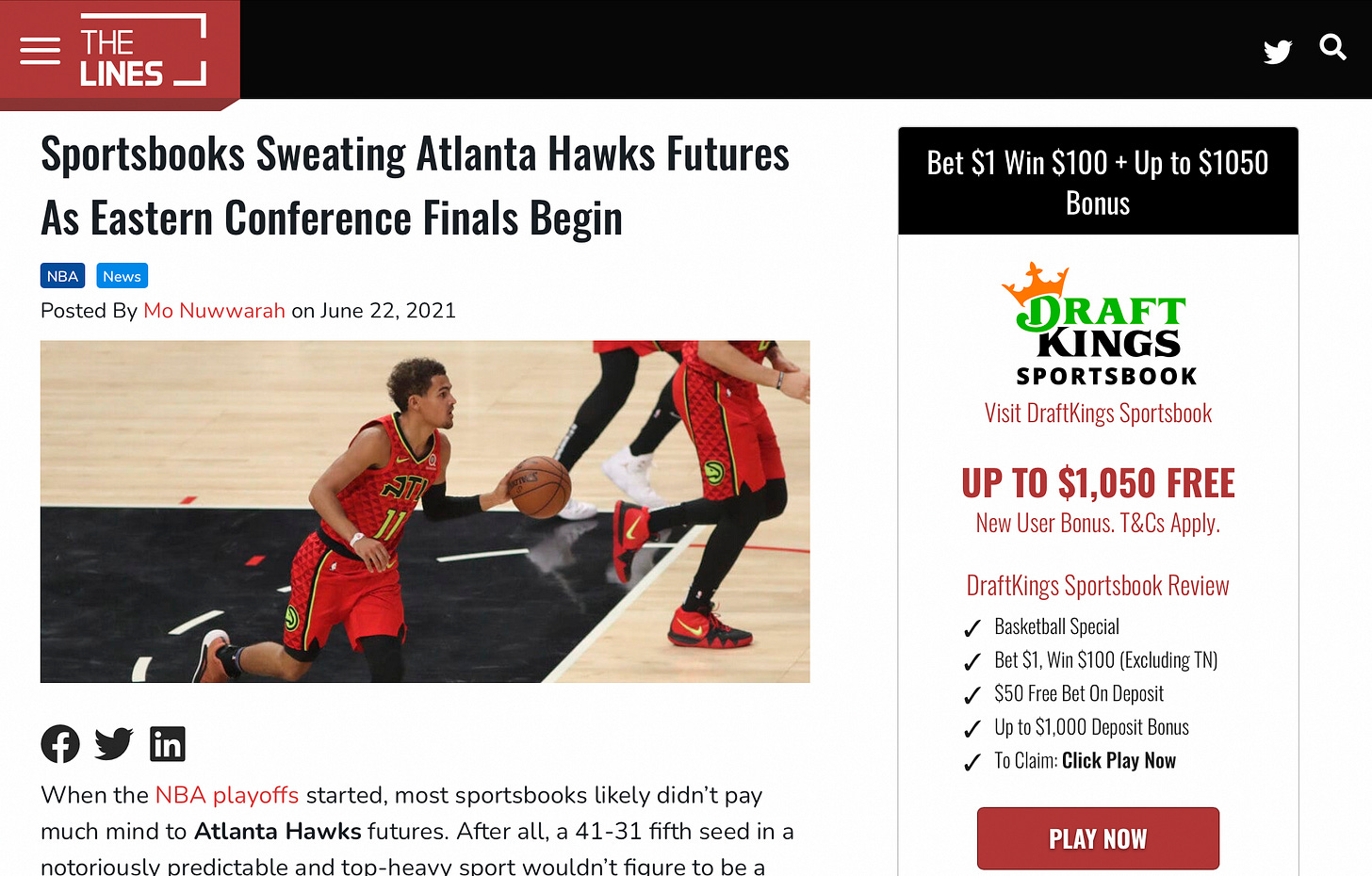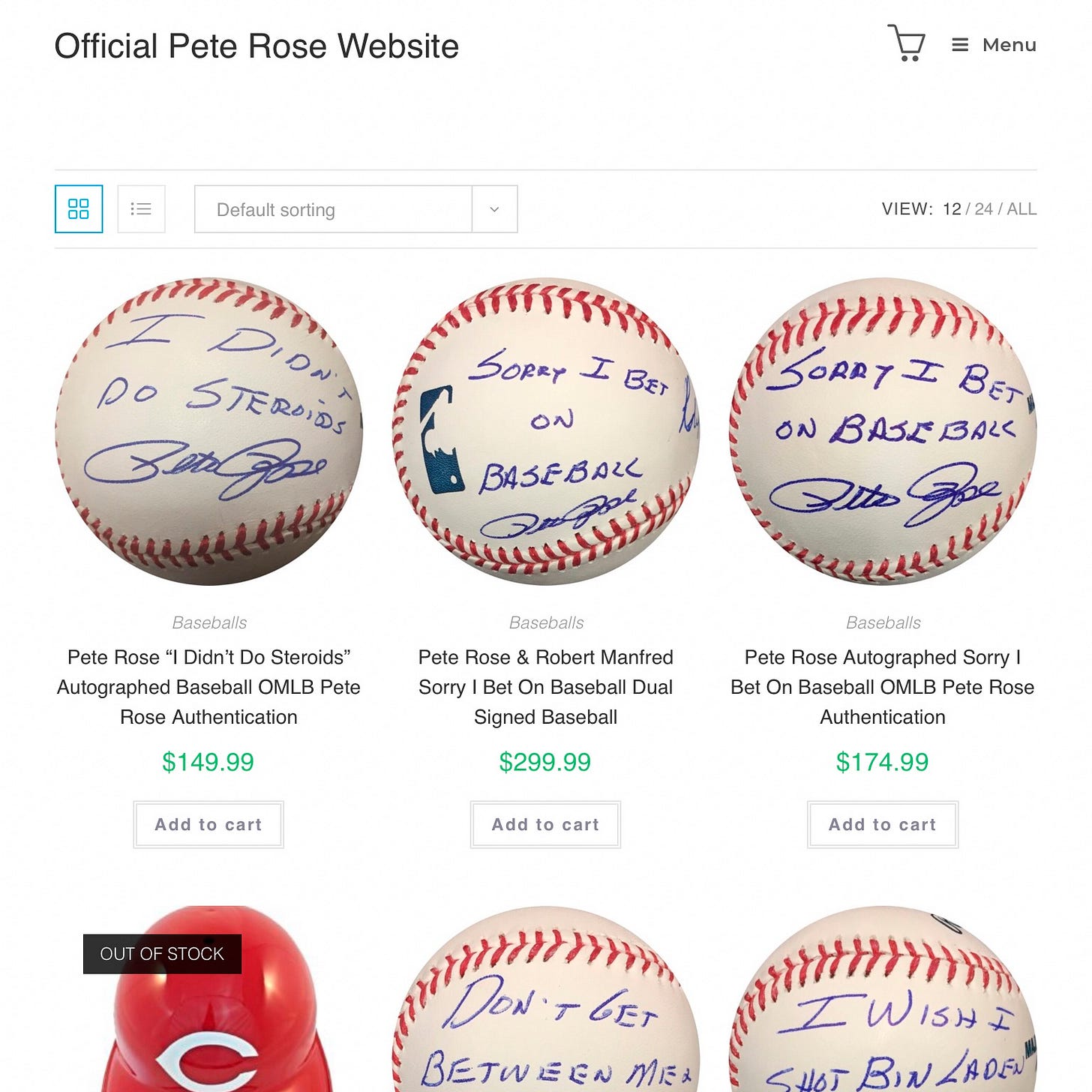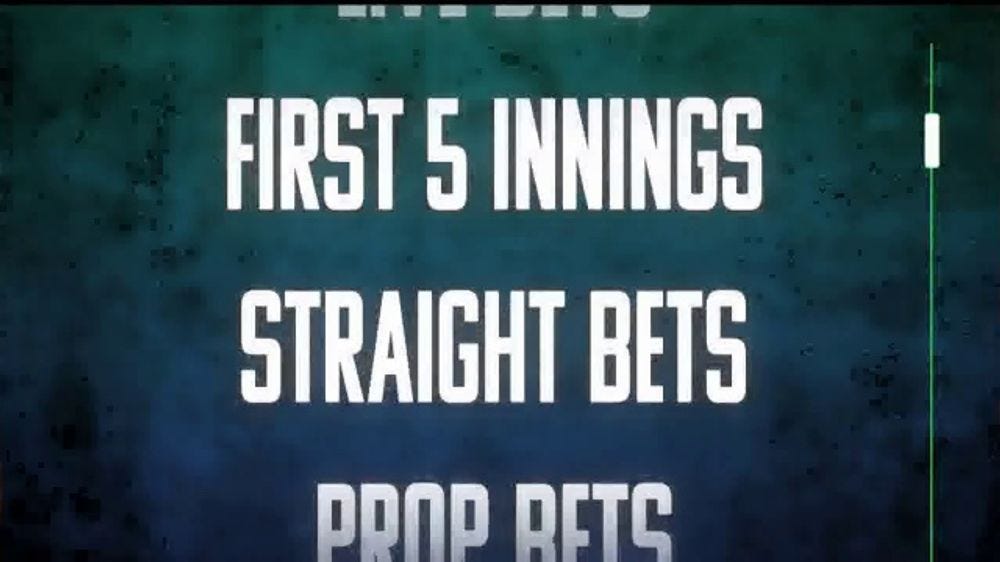Baseball Gambles with the Gamblers
MLB and Other Major Sports Leagues Have Bought Into the Online Betting Craze
I’m watching the Mets play the Cubs. End of inning. Go to a commercial. Fan Duel. Draft Kings. Wagers. Bet on who will get the next hit. Next home run. The next pitch.
Headline the next day in The New York Post: “Yankees, Mets have splits bettors can cash in on.”
This is commonplace. Normal. Sports books advertise on local baseball — to the tune of $153.6 million, according to Sportico — and national sports. BetMGM’s flashy ads run on ESPN during the Nets-Bucks game. Bet on the next basket. The next free throw. The next foul.
This feels wrong. The direct connection between professional sports and gambling, between all public sports and gambling. Imagine: Pete Rose at the plate. Eric Show on the mound. Is this the swing that will break Ty Cobb’s hit record? Log in, place a bet. Win the cash. Imagine.
Rose remains banned from baseball, from the Hall of Fame. The Major Leagues’ all-time hits leader banished from the sport. For doing what the sport now encourages others to do. Rose bet on baseball, as he says. Bet on his own team. Major League Baseball banned him. The Hall of Fame followed suit. On his website, Rose hawks signed baseballs. “Sorry I bet on baseball.” “I didn’t do steroids.” “I wish I shot bin Laden.” Tongue in cheek. The target seems clear. Rose is making money off his name. Off his infamy. Despite the ban.
Gambling has long been baseball’s unforgivable sin. Since the Black Sox scandal of 1919, when the Chicago White Sox threw the World Series to the Reds, baseball has taken a hardline against betting on the sport. Legal. Illegal. It has not mattered. Eight members of that White Sox team were banned from the game. Despite an acquittal in court. Despite there remaining some doubt about some of the players.
Leo Durocher was suspended for the 1947 season, partly because of his association with gamblers and crime figures.
Willie Mays was suspended from baseball in 1979 after he took a part-time position with an Atlantic City casino. Mickey Mantle would face the same fate a few years later.
The message, one enforced by commissioner after commissioner, from Kennesaw Mountain Landis to the Robert Manfredi: Gambling and baseball do not mix.
It has been a consistent message for the last 100 years — baseball’s early dalliances with gambling are legend (John Thorn, a baseball historian, described gambling as “vital fertilizer”) — but something’s obviously changed.
Baseball remains concerned with the integrity of the game. With ensuring that its competition on the field is fair and that the outcomes of games are determined only by skill and smarts. It is cracking down on pitchers who use foreign substances. It suspended the managers of the Astros and Red Sox after determining that they were stealing signs, using new technologies (sign stealing has a storied history in the game). It remains concerned about drug use and steroids, which badly marred the sport’s reputation.
But baseball also wants to generate a profit and a fan base. It looked the other way for a decade as steroids spread throughout the game — see the Oakland A’s legendary Bash Brothers in the late 1980s — and then played ostrich as Mark McGwire and Sammy Sosa engaged in what most people view as a steroid-fueled assault on the MLB single-season home run record.
The deals the league and many of its teams have made with DraftKings, FanDuel, and BetMGM are about money. About generating revenue from the deals and creating a new fan base, as Andrew Zimbalist, an economist and professor at Smith College, told Forbes.
“If more people are betting, more people are watching, and that raises TV revenue. It would also enable teams to raise ticket prices — depending, of course, upon when fans are allowed back into stadiums. There is greater fan avidity. One of the things sports leagues are contending with is the proliferation of the internet and all different types of entertainment sources. There is more competition than ever before.
“If you’re going to further build a fan base, sports betting is going to do that.”
Baseball officials get it. Kenny Gersh, MLB executive Vice President for gaming & new business ventures, said as much in a DraftKings press release last year:
“Fan engagement has been central to our partnership with DraftKings since we began working together almost a decade ago. Together we have continually tried to enhance baseball fans’ experiences with innovative gaming and entertainment options and we look forward to keep developing and building on those unique elements.”
The other sports, while not as militant, were also anti-gambling. College basketball was beset by a major gambling scandal in the 1950s. And gamblers had been associated with football for most of its early history. Like baseball, the rules were clear.
Until they weren’t. Until the major sports leagues — the NBA, the NFL, even the NCAA — jumped into bed with the legal sports books. Until the NFL broke the unspoken rule of all major sports and allowed a team to move to Las Vegas, the national gambling Mecca.
I get it. The money is good. And there is no reason the leagues should not profit from a business that uses the leagues to generate wealth. But gambling can have a distorting effect, which is why Pete Rose remains persona non grata at Major League ballparks. Which is why baseball, in particular, has for the last century vigilantly protected the game from even the hint of gambling scandal.
It’s not clear whether the dalliances with the major sports books will change the dynamics. Baseball and the other sports need to be careful not to allow legal betting to interfere with the competitive balance, with the actions that take place in the field or on the court. Especially with bets being placed on individual plays and players.
I’m not a gambler, and I’m not anti-gambling. I’ve been known to join a March Madness pool, or drop a couple of dollars in a machine as I walk through a casino. I’ve long supported the legalization of gambling, though I also know that gambling can be addictive to some and that gambling offers little to the larger culture. It is no accident that the worst aspects of our finance-driven economy are compared to casinos, which are in the business of moving money from one place to another without creating anything but money.
Unlike roulette or craps, which in theory are games of pure chance, baseball and the other sports are games of skill. Games in which the individual efforts and actions of ball players decide the fate of their teams. There is some chance involved — a couple of inches one way or the other on a line drive down the left field line and it is fair or foul — but it is very much a human effort, subject to human frailties. Big-time gamblers understand this. The stories of fixed games and fights, the mythology of the dive and rigged horse races, even when and where the betting has been legal, should remain cautionary tales, as should the steroid era, the sign-stealing scandal and the current crackdown on sticky substances. Athletes and gamblers will always seek an edge.






